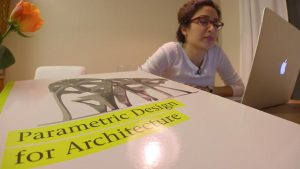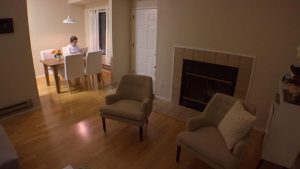Source: www.nbcbayarea.com
It is late on a Wednesday evening and in Niknaz Aftahi’s second-floor Richmond apartment an underground class is just about to start.
“Has anyone new joined?” asked Aftahi, looking at the video conferencing site where her students are gathering.
Aftahi is preparing to teach English for Architecture to a handful of students logged in from her native Iran. It is, for Aftahi, a chance to give something back to people who had given her so much.
“I want to give back to this Institute that gave me the privilege of becoming educated,” Aftahi said.
Aftahi is referring to the Baha’i Institute For Higher Education or BIHE. Formed 30 years ago, the BIHE is an underground university in Iran educating members of the Baha’i faith. The Baha’i, Aftahi says, are being systematically oppressed by the religious government of Iran. One way in which that happens is making it difficult, if not impossible, for young Baha’i to pursue higher education.
Which is where BIHE comes in.
The BIHE has no campus or buildings. Professors meet their students in the kitchens, living rooms, and basements of sympathetic homeowners. It is not without risk, though. The government has, at times, raided homes and jailed professors.
Aftahi graduated from BIHE in 2010.
“Teaching at BIHE in Iran means any day you can go to prison, so they put their lives (one the) line,” Aftahi said. “I always see that as a big sacrifice and the did that for me.”
After graduating BIHE, Aftahi moved to the United States and was accepted to study for a Master’s Degree in Architecture from U.C. Berkeley.
Now established as a working architect for a firm in Berkeley, Aftahi dedicates her early mornings and late evenings to her students in Iran. It is risky for them even to take her class.
Aftahzi also realizes that, until government attitude toward the Baha’i changes, she will not feel safe traveling back to Iran to see her family. A nephew of hers died last year but she didn’t return for the funeral.
“That was hard,” Aftahi said. “Very difficult but it was my choice. And I made that choice.”
Aftahi hopes that by shedding light on a school that operates in the shadows pressure will build on the government of Iran to change its position.
Until then, she will keep teaching long distance, hoping for big change.




Leave a Reply